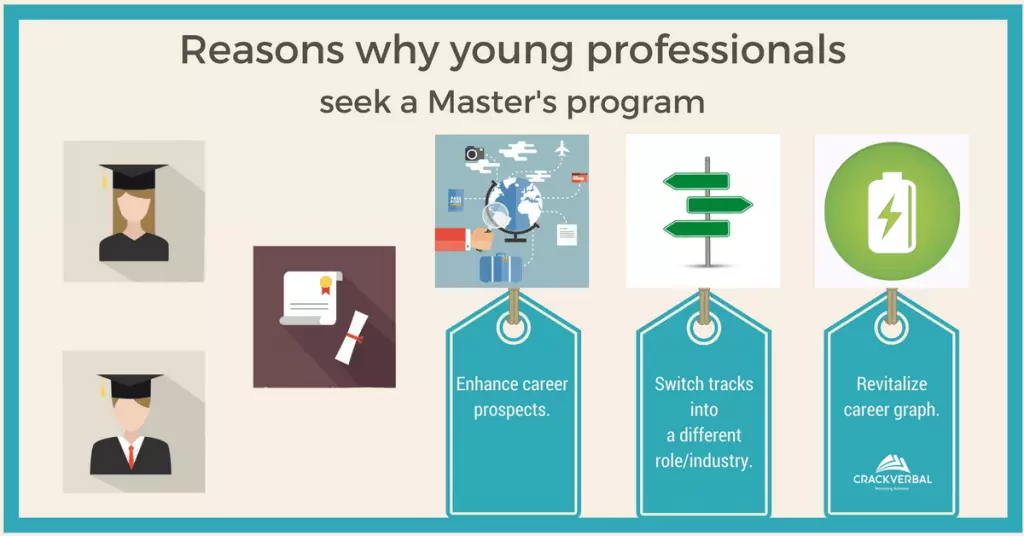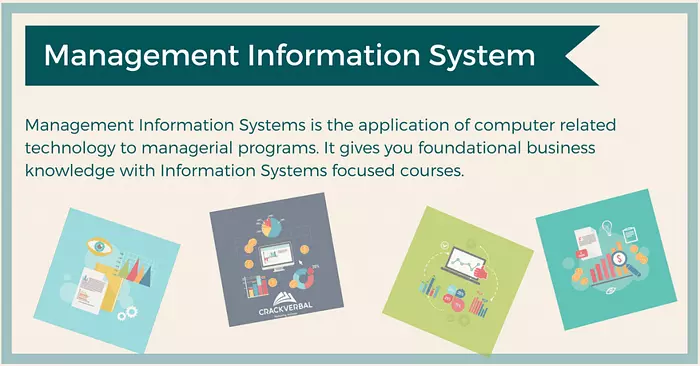Let’s make a few guesses about you, our reader.
You probably completed an undergraduate degree in engineering, and have a few years of work-experience. Quite likely, the higher-education bug has bitten you (well, why else would you be reading this)
Whether it be to kick-start your career with more ammo, enhance your career prospects, or switch tracks, you’ve decided to pursue a master’s degree.

If you’re like most students we’ve known, you probably have a good understanding of how an MS or an MBA will educate you, but you’re not too sure when it comes to the Management Information System (MIS) program. You’ve heard many different descriptions, but they all boil down to this oversimplified sentence – An MIS is in-between an MS and an MBA.
Now, what on earth does that mean?
We’ve written this blog to clear the mystery surrounding the MIS program and help you decide whether this is the degree that will meet your needs!
Before we get into details, let us give you a quick-and-dirty thumb rule to see whether this is the right program for you. Simply put, this degree is for you if:
- You enjoy working with technology, but cannot see yourself writing code for the rest of your life.
- You have a gut-level passion for technology, but ALSO have an inclination for high-impact business, and you find it difficult to choose between your two interests.
Is this something you can relate to?
Well, read on! In this blog, we cover all aspects of the MIS program – such as what the curriculum comprises, what career paths will open to you as an MIS graduate, how you can get into a good program, and how you can finance your studies!
Table of Contents
1. MIS BASICS
1.1 What is an MS in Management Information System?
Remember the layman definition ‘something between an MS and MBA’ that we discussed in the introduction?
Well, a more accurate description of the MIS program would be that it is geared to teach you skills that relate to the intersection of IT and business.
MIS is the application of computer related technology to managerial programs. With a Master of Science (MS) in MIS, you will acquire foundational business knowledge with courses focused on Information Systems.

On graduation, you will be ready for jobs that require you to identify problems and leverage technology to develop solutions for your business problems.
The management of IT systems is considered a business function because of the impact of information technology on businesses, and is therefore offered by Business Schools in various universities. It is also offered by specific schools of Information Studies.
In other words, it is a core business program with engineering electives. Most of the programs can be completed in 18-24 months and require 33 credit hours of coursework. Some universities may require you to complete a thesis during the course of the degree.
Like the Master’s in MIS, there are other integrative courses that combine technology and business.
- MEM (MS in Engineering Management)
- MIM (MS in Information Management)
- MSIS (MS in Information Systems)
- MSTM (MS in Technology Management)
- MSEM (MS in Engineering Management)
Don’t let this list worry you! All these courses have similar curriculums and are just variations of offered through different names in different schools.
1.2 What does the MIS Curriculum Comprise
While the curriculum may vary, the following courses are common to most universities:
- System Analysis and Design
- Database Management
- Enterprise architecture
- Information Security and Compliance
- E-Commerce and Internet based Applications
- Data Warehousing
- Business Process Design
- Business Intelligence Applications
- Information Systems Strategy and Governance
- Project Management
Also, within the Management Information System world, you will have certain programs that are more suitable for students with a strong background in information technology who want to advance to a management position. There are also other programs which better suit business professionals who want to utilize information technology in their management practices.
When you begin to consider various schools, look through their course curriculum to see whether they have a heavier component of information technology or business!
1.3 What kind of people will you come across in an MIS Program?
In an MIS class, you will find students from a variety of backgrounds. You will find students who just finished their undergraduate degree and decided to immediately pursue a post-graduate program, students who are pursuing the degree in order to advance beyond the pure technical role they were in, and students who do not have a strong background in information technology and are looking to switch careers.
Though professional experience is not compulsory for this program, some universities may suggest that you have some experience before applying.
You will find that the majority of your MIS classmates are between 22 and 26 years of age.
2. CAREER PROSPECTS
2.1 So, what do you do after an MIS?
Remember the layman definition ‘something between an MS and MBA’ that we discussed in the introduction?
Well, a more accurate description of the MIS program would be that it is geared to teach you skills that relate to the intersection of IT and business.
MIS is the application of computer related technology to managerial programs. With a Master of Science (MS) in MIS, you will acquire foundational business knowledge with courses focused on Information Systems.
MIS professionals are the “communication bridge” between business needs and technology. As you may have already guessed, they are in very high demand in today’s world! An MIS degree from a top school can be your ticket to the rewarding job you’ve been dreaming of – rewarding both in terms of job satisfaction and monetary benefits.
According to the U.S. Bureau of Labor Statistics, in 2014, the median annual income of computer and information systems managers was USD127,640, with the middle 50% earning between USD99,320 and USD161,520.
Companies that hire MIS grads include:
- The Big 4 (Deloitte, KPMG, PwC, EY)
- Banks such as Citi, JP Morgan, and Bank of America
- Technology companies such as Microsoft, Adobe, and Facebook
Read on for specific job roles you are likely to bag!
Information Systems Manager
Information systems managers are responsible for the computer systems within a company. Information systems managers are high-level executives in charge of computer- and technology-related research, development, and productivity of organizations.
Business Analyst
In today’s complex business environment, organizations need to be adaptable to constant change; traditional methods may not always help in achieving the company’s objectives. This is where business analysts come in. They help businesses implement technology solutions in a cost-effective way by determining the requirements of a project or program, and communicating them to stakeholders, facilitators, and partners.
Computer Systems Analyst
Computer systems analysts improve the efficiency of the computer systems in an organization. They analyze user requirements, procedures, and problems, and automate or improve existing systems, and review computer system capabilities, workflows, and scheduling limitations.
Toward this end, they introduce new and improved methods that further optimize the resources of existing systems, or they develop entirely new computer systems using different hardware or programs.
Data Analyst
Data analysts collect, process, and perform statistical analyses of data. Their aim is to discover how data can be used to answer questions and solve problems. With Big Data Analytics coming to the fore, data analysts have never had it so good!
Systems Analyst
A systems analyst is a person who uses analysis and design techniques to solve business problems using information technology. Systems analysts may serve as change agents who identify the organizational improvements needed, design systems to implement those changes, and train and motivate others to use the systems.
Business Application Developer
Applications developers translate business software requirements into workable programming code and maintain and develop programs for use in business. Job titles and specific duties may vary between organizations but the role usually involves writing specifications and designing, building, testing, implementing, and sometimes supporting applications using programming languages and development tools.
IT Consultant
An IT consultant works in partnership with clients, advising them on how to use information technology to meet their business objectives. They work to improve the structure and efficiency of IT systems in organizations.
IT Development Project Leader/ Project Manager
As Development Leader/Manager, you have a number of responsibilities, but the primary one is to get a product out the door. Your goal is to deliver results to the customer or market and to do everything necessary to achieve them. You need to make sure the development team is able to work efficiently, and this means making sure they have clear short term and long term goals, and that nothing prevents them from doing their work.
Business Intelligence Analyst
A business intelligence (BI) analyst is a professional role where the individual is responsible for analyzing data that is used by a business or organization. Data used in BI generally supports decision-making. The BI analyst works with this kind of data to maximize its utility.
3. TOP 10 US SCHOOLS FOR MIS
There are many universities in the US that offer this program. MIS is offered through B-Schools as well as through schools of Information Studies.
Following is a list of the ten best Masters in Management Information Systems (MIS) programs in the US:

- Carnegie Mellon University (Heinz College)
- University of Arizona (Eller College of Business)
- Texas A & M University (Mays Business School)
- Indiana University (Kelley School of Business)
- Oklahoma State University (Spears School of Business)
- University at Buffalo – SUNY (School of Management)
- New York University (Stern)
- University of California, Berkeley
- Syracuse University
- University of Maryland
See Top Ten Universities for MIS Programs in the US for more information.
4. 8 STEPS TO AN MIS PROGRAM
4.1. Figure out if you are eligible
As MIS is an integrative field, the eligibility net might be a wider one than for other purely technical or business courses. Some schools may require you to have a degree in Information Technology at an undergraduate level. However, in certain other schools, if you do not have a background in IT, it is still considered as acceptable. You will then be provided the option to take certain extra courses after joining.
Also, a year of work experience will give you industry exposure, and some schools may consider that this will help you contribute better to the class. So, whether required or not, a little bit of industry experience can increase your chances of getting an admit.
4.2. Take the GRE or the GMAT
To get into a top school for an MIS program, you will need a GRE or a GMAT score. Look up the school’s website for particulars as to which test is accepted and what the average accepted score is.
When it comes to preparing for the exam, you will find that there are plenty of online resources to help you! Make sure that you check out forums such as BeattheGmat, GmatClub, MSinUS,Thegradcafe and of course, Quora!
4.3. Take a standardized language test
Most schools require you to take a language course like TOEFL or IELTS.
For the U.K., TOEFL test scores are accepted for Tier 4 student visas under certain conditions. IELTS is recognised by universities and employers in many countries, including Australia, Canada, Ireland, New Zealand, the UK and the USA.
The perfect score for the TOEFL iBT is 120, with 30 points for each of the four sections. The perfect score for the IELTS is a 9.
Both test the four main language skills: reading, writing, listening and speaking. They are both standardised tests which- in theory- means that the scoring is consistent throughout the world.
Do not worry too much about your preparation for the TOEFL and IELTS. Your preparation for the GMAT or the GRE should largely suffice. Just devote an additional week to your TOEFL/IELTS, and you should be good to go!
Here are some tips to help you prepare for the TOEFL.
4.4. Find out whether your undergrad GPA meets the school requirements
International B-Schools measure your academic performance through your Grade Point Average (GPA).
Find out the standard requirement of your school before you apply. However, do not, we repeat, do not try to convert your score into a 4. GPA. The college will take care of that.
Also, graduate-level entry into international B-Schools requires the completion of a Bachelor’s degree or equivalent from an internationally recognized institution.
When in doubt about your academic suitability for a program, we recommend that you directly reach out to the college Admission Committee (AdCom) rather than relying on the opinions of your friends or acquaintances. You definitely do not want to go all the way with your application process, only to find out that you do not meet the academic criteria.
4.5. Write a great SOP
Your statement of purpose (SOP) is very important when it comes to your admissions.
When writing it, make sure that it brings out your experience, abilities, and qualifications in the field. Highlight your career goals, and your reasons for choosing to do an MIS program.
Make your SOP heartfelt and authentic; do not to make it a cookie-cutter SOP that anybody could have written.
Your SOP must convince the AdComs that you are a great fit for their program. Here are some great tips to write a great SOP.
If you are not sure whether your SOP ticks all the right boxes, get it reviewed by a professional consultant.
4.6. Craft a sharp resume
Your resume provides the AdCom with more data-centric information than what is included in your SOP. A good resume will talk about your educational qualification, extracurricular activities, and your professional experience, if any, in a concise and presentable format.
Crispness and specific detail are at the core of a great resume. Remember that each word in your resume has to carry value.
Also, remember that each bullet point in your resume has to convey impact. Therefore, do not just focus on what you did, but what impact was achieved as a result of what you did.
4.7. Get Recommendations from the right people
Contact a professor or a boss whom you have worked closely with and who knows you well enough to write a detailed, authentic recommendation for you.
A recommendation letter does not just furnish details about your job or academics, but also provides insight into your personality and character. It is a testament to the skills that will matter in the academic course you are pursuing.
One crucial thing to remember, that many aspirants get wrong – Approach your recommenders well in advance! Give them time to construct their thoughts and put them on paper, and give yourself the time to review the recommendation.
If you force your recommender to write something two days before the deadline, they’re not likely to feel very cordial towards you as they are writing your recommendation. You wouldn’t want that, would you? 🙂
4.8. Ace your interview
Hone your interview skills.
Almost all schools will require an interview round once your application has been selected. However, do not wait until then to prepare for the interview.
Do some research in advance on the kinds of questions asked and the kind of responses expected.
Get help from experts to prepare for your interview.
Now that you know which schools you want to apply to, and what you need to do to apply, let’s tackle the all-important hurdle on the way – Financing your MIS!
5. FUNDING YOUR MIS
There are many ways to fund your MIS program. See Funding Your MIS for more information.
Now that you know what a Master’s in MIS program is all about and what career options open up to you after completing an MIS, we hope you’re closer to making up your mind about the MIS!
Are your considering applying to an MIS Program? If you want personalized feedback on your profile, reach out to us!
